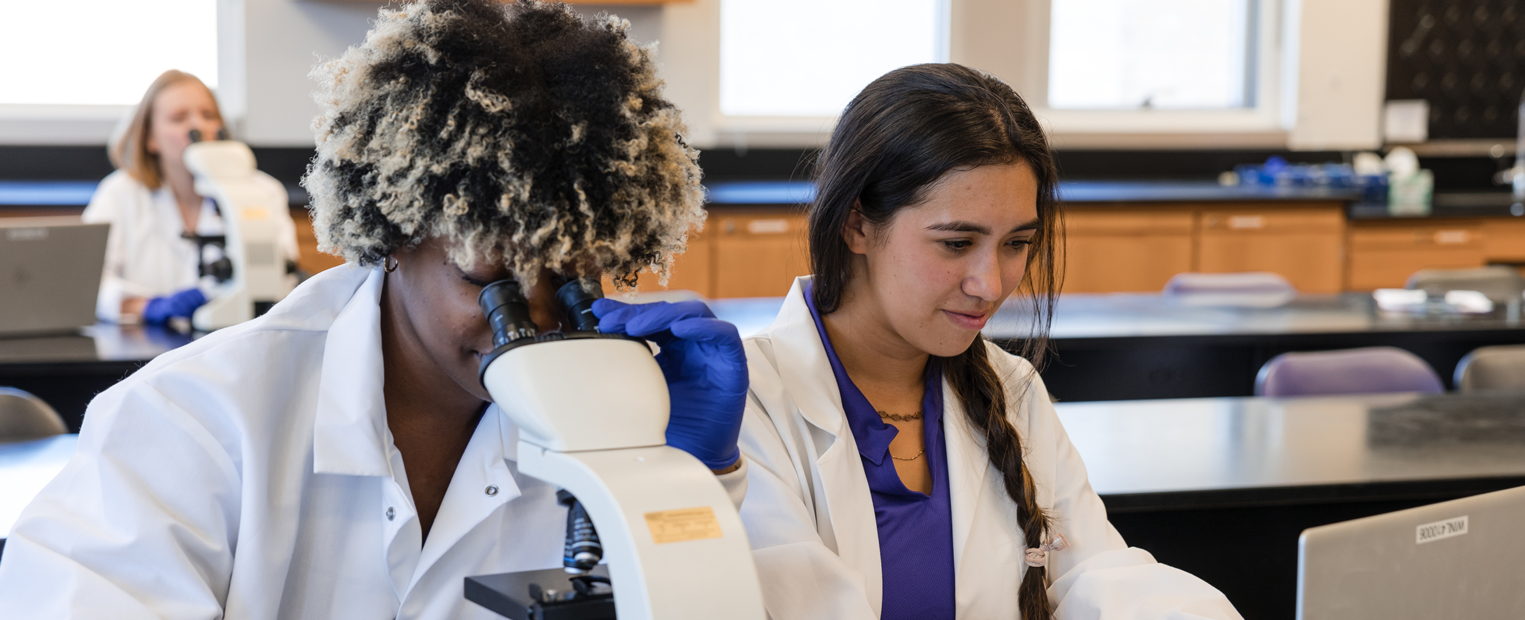
College of Science & Engineering Q&A
Dean Einstein and Matt Chumchal, Ph.D., Professor and Director of the Pre-Health Professions Institute answered questions about TCU's College of Science & Engineering in a Facebook Live Q&A. They chatted about how TCU prepares undergraduates with early research opportunities, experiential learning and support for applying to medical schools. In fact, 88% of TCU students are accepted to health profession schools (twice the national average). Watch the video below for timestamps to find the answers to your questions!
More than 40% of undergraduate students participate in research before they graduate, preparing students for successful careers. This is uncommon and indicative of the personal attention and care we put into teaching and research. Around 98% of faculty teach undergraduates, and faculty advisors help students select classes, find research opportunities and internships and even offer study tips.
Students interested in pre-health can choose any major at TCU, however most students major in biology, chemistry or other majors in the College of Science and Engineering. We recommend you follow your interests and aptitude rather than choosing a major you think will look good on medical school applications. You're likely to be more successful if you major in something you're passionate about. The Pre-Health Professions Institute will help you take the science pre-requisites you need and prepare you to apply to medical, dental, veterinary medicine, PA and other professional schools.
Graduates are highly prepared to apply for medical school
Speaking of applying to medical school, pre-health students attend a seminar their first year to discover resources like clinical shadowing, volunteer programs and research opportunities. Students also develop their goals and discuss how to succeed even when the program gets tough, learning new study habits and taking advantage of advising and mentorship. Juniors and seniors in the pre-health track take a 3-hour class focused on putting together a successful medical school application. Faculty hold mock interviews, review application materials and write meaningful recommendation letters because they've built relationships with their students.
- If you are calculus ready, do you suggest taking another calculus class before the fall? - 15:36
- Do you accept spring semester transfers with over 60 credit hours? - 19:00
- I'm currently completing my associates degree in high school - will I be classified as a first-year student or junior? - 23:02?
- Do you have to apply to pre-health or just apply to TCU? - 25:05
- What research projects have students been involved in and can first-year students conduct research? - 30:56
- Do undergraduates have the opportunity to participate in clinical research? - 34:14
- What will help a student succeed in science and engineering majors? - 36:25
- What are some initial pre-med classes you take? - 39:02
- What is the class size for pre-med students? - 40:21
- How do incoming students know what classes to register for at orientation? - 42:28
- How will TCU advisors help if a student starts in sciences/healthcare but decides they don't want to follow that path anymore? - 44:13
- What percentage of TCU pre-health students get accepted to medical school? - 47:13
- What's the average number of TCU students who apply to medical school each year? - 53:54
- What undergraduate degrees do you recommend for psychiatry and veterinary medicine respectively? - 54:21
- Do you apply directly to your major? What are the most competitive majors? - 56:08
- What are the most popular majors for med students? - 59:03